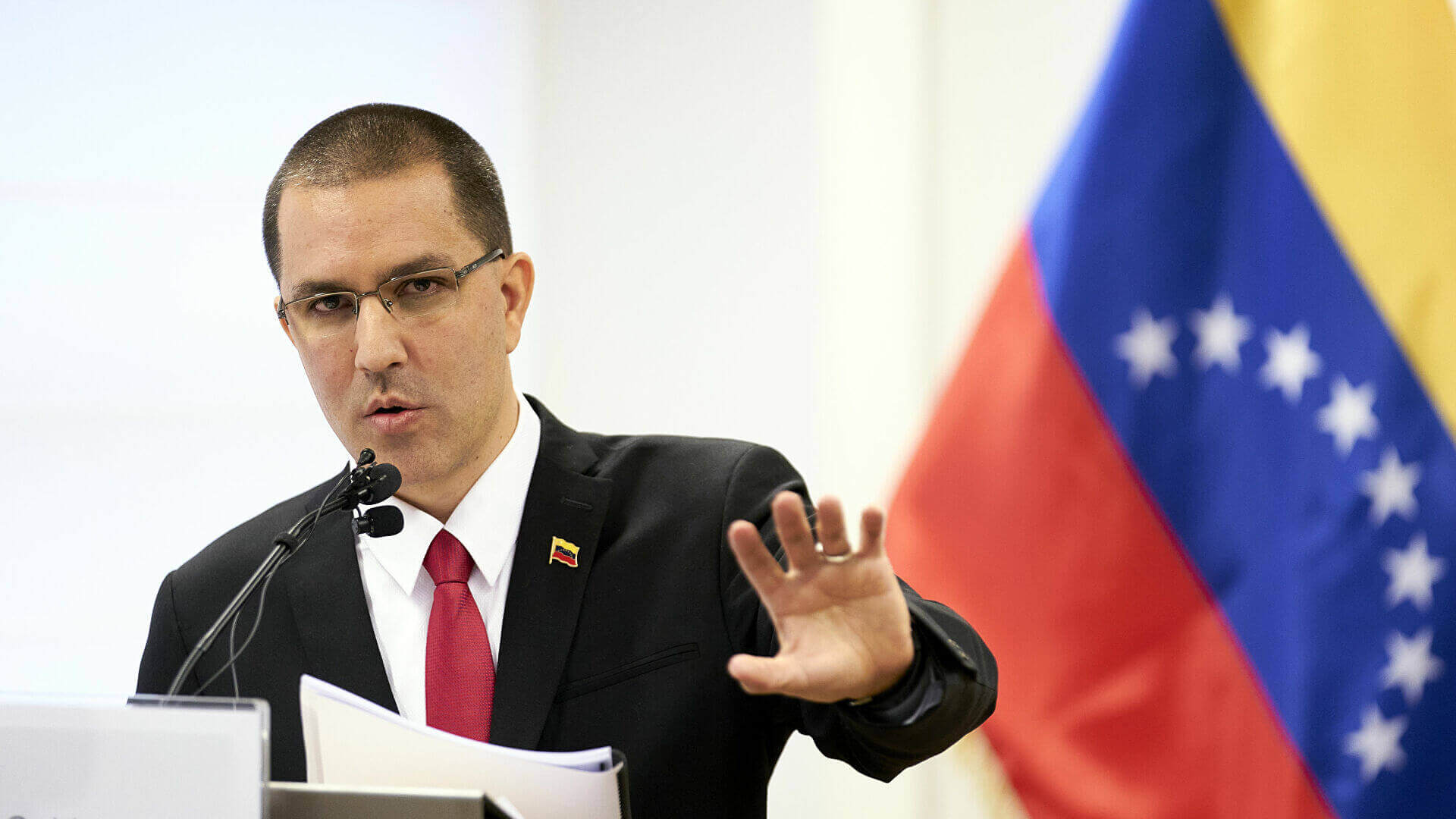Venezuelan Foreign Minister Jorge Arreaza announced that President Nicolás Maduro had ordered the European Union’s (EU) ambassador to Caracas, Isabel Brilhante Pedros, to leave the country within 72 hours in response to the EU’s decision this week to levy sanctions on 19 Venezuelan government officials.
On Monday, EU foreign ministers increased the number of Venezuelan officials it has sanctioned to 55, saying that the 19 it added to the list are “responsible, notably, for undermining the oppositions’ electoral rights and the democratic functioning of the National Assembly, and for serious violations of human rights and restrictions of fundamental freedoms”. The sanctions involve travel bans and asset freezes and are aimed at “promoting peaceful dialogue and a democratic and sustainable solution to the crises in the country”. The EU first imposed sanctions on the country in 2017, which began with an arms embargo.
In response, today, Arreaza announced, “by decision of President Nicolas Maduro, we presented to Mrs Isabel Brilhante... her declaration as persona non grata,” adding, “She has been given 72 hours to leave Venezuelan territory.” Arreaza denounced the “illegal” and “unacceptable” measures undertaken by the EU and said, “We are doing it because the circumstances demand it … They have no moral authority nor legal authority to punish anyone,” Arreaza said. “It’s truly unacceptable.” He ended by saying: “Hopefully there will be reflection in the European Union, hopefully we will be able to rebuild the bridges of understanding, of dialogue, hopefully they will learn to respect.”
EU spokesperson Nabila Massrali has already denounced Venezuela’s retaliation, saying, “The EU profoundly regrets this decision, which will only lead to further international isolation of Venezuela. We call for this decision to be reversed.” She went on to say, “Venezuela will only overcome its ongoing crisis through negotiation and dialogue, to which the EU is fully committed but which this decision undermines directly.”
In fact, this is not the first time the EU envoy has been at the centre of tit-for-tat measures by the EU and Venezuela. Last June, Maduro ordered her to leave the country within 72 hours after the EU slapped additional sanctions on eleven loyalists to the Maduro regime. However, when the 72 hours had elapsed, Venezuela ultimately rescinded its order.
The latest measure came after a vote in the parliament, during which the National Assembly called for a ‘full revision’ of the EU’s “presence in Venezuela”. In fact, during the vote, Assembly Speaker, Jorge Rodríguez, said, “I vote with both hands for the European Union representative to be declared persona non grata.”
The EU ambassador was informed of Maduro’s decision in person, and was joined in the meeting by representatives from France, Spain, the Netherlands, and Germany.
The EU’s claims of electoral malpractice are rooted in Venezuela’s legislative elections in December, which several Western actors decried as ‘fraudulent’.
The Maduro-led PSUV coalition won 256 out of 277 seats in December’s parliamentary election. The election, however, drew alarm and suspicion over its legitimacy, as only 31% of 20 million eligible voters took part. This was driven in large part by the fact that Juan Guaidó—who anointed himself as the interim president on January 2019 and is recognised by over 60 countries as the legitimate leader of the country—led calls for a boycott of the ‘fraudulent’ election, leading to over 24 opposition parties boycotting the election.
In the weeks following the election, the EU appeared to have begrudgingly accepted the results despite earlier rejecting them. In fact, the EU began referring to Guaidó, the former leader of the legislative assembly and the opposition politician whom they recognised as the legitimate leader of Venezuela, as a “representative of the outgoing National Assembly”.
While the latest sanctions aren’t necessarily a reassertion of the EU’s backing of Guaidó, they do appear to suggest that the bloc is not backing down from its claims of electoral fraud and that it is still pushing for a change in leadership.
In its statement, the European Council said that the sanctions are “designed not to have adverse humanitarian effects or unintended consequences for the Venezuelan population”. However, this could be argued to be impossible to achieve. For example, earlier this week, at the 46th session of the United Nations (UN) Human Rights Council (HRC), Madro said, “The U.S. has applied over 450 unilateral coercive measures, which have caused economic damages for over US$30 billion, which could have been used to fight the COVID-19 pandemic and achieve better living standards for Venezuelans.”
The International Monetary Fund has forecasted that the Venezuelan economy will contract by 25% and that inflation will increase by 6,500% from 2019. All of this has left roughly 94% of the population living below the poverty line. In fact, over five million Venezuelans have emigrated from the country due to rising inflation, unemployment, and crime, and fuel, medicinal, and food shortages.
Renewed EU sanctions will no doubt only add to the country’s ever-increasing strife.
Venezuela Expels EU Ambassador in Response to Sanctions on 19 Officials
Foreign Minister Jorge Arreaza announced, “by decision of President Nicolás Maduro, we presented to Mrs Isabel Brilhante... her declaration as persona non grata.”
February 25, 2021

IMAGE SOURCE: PHIL NIJHUIS / APVenezuelan Foreign Minister Jorge Arreaza
